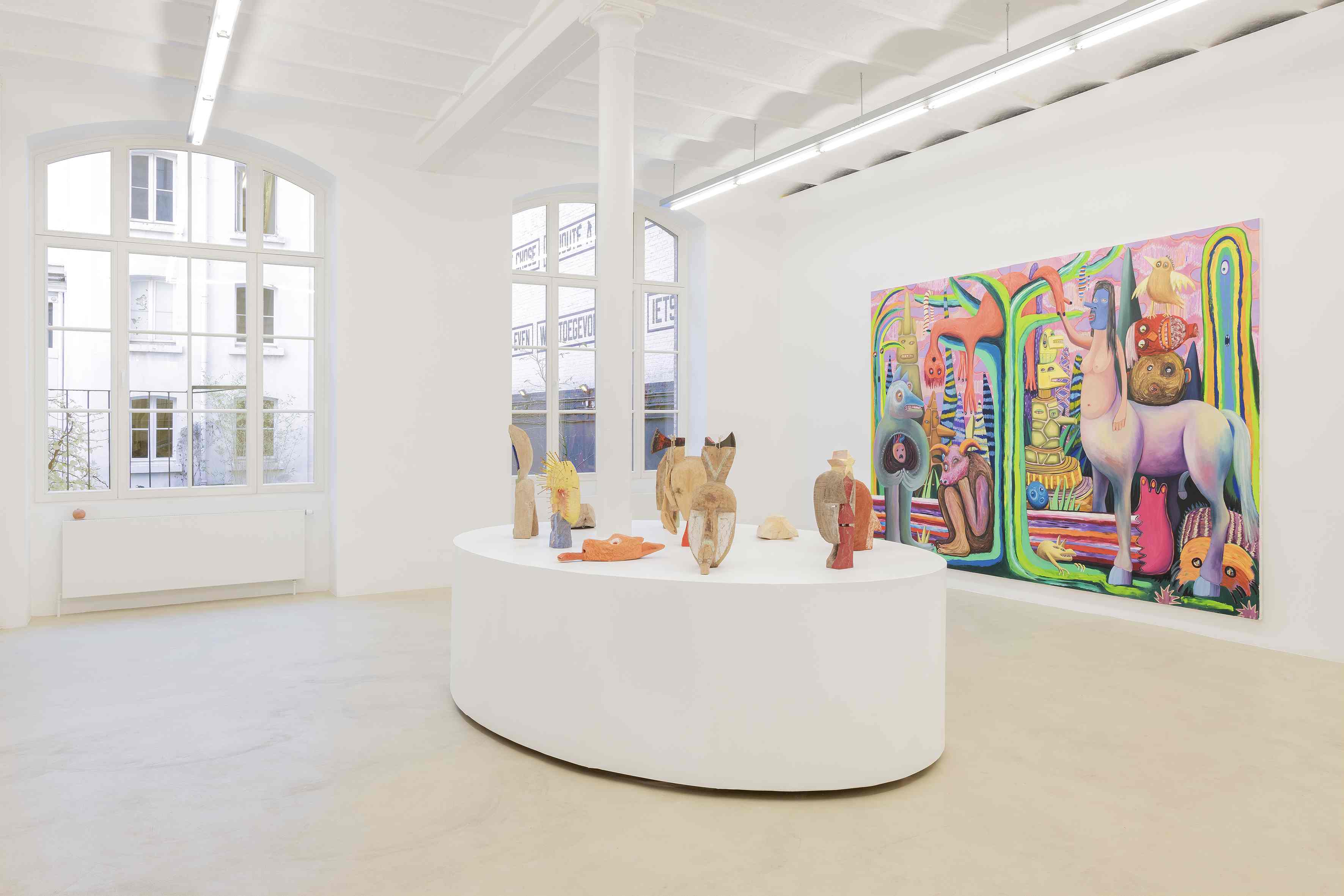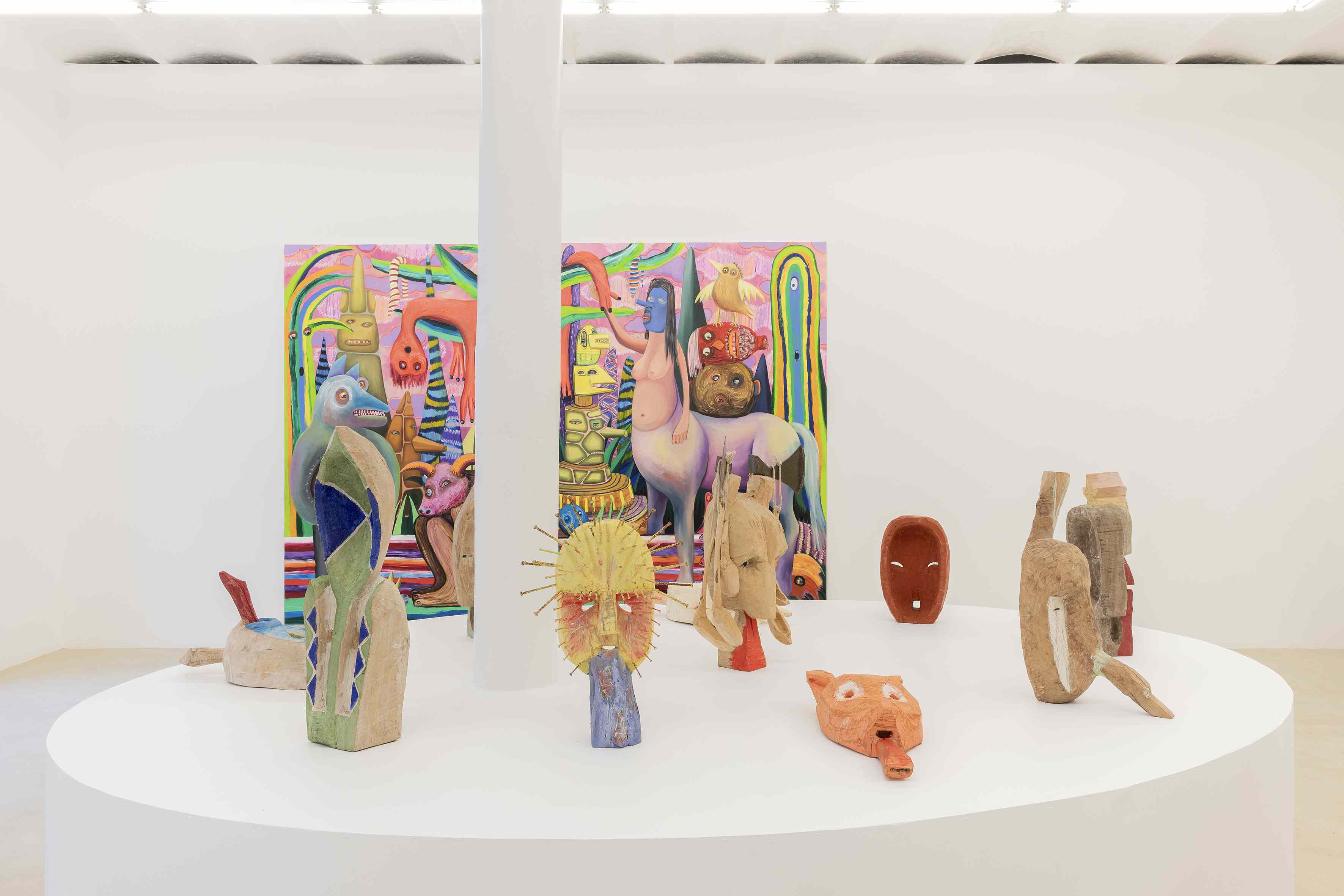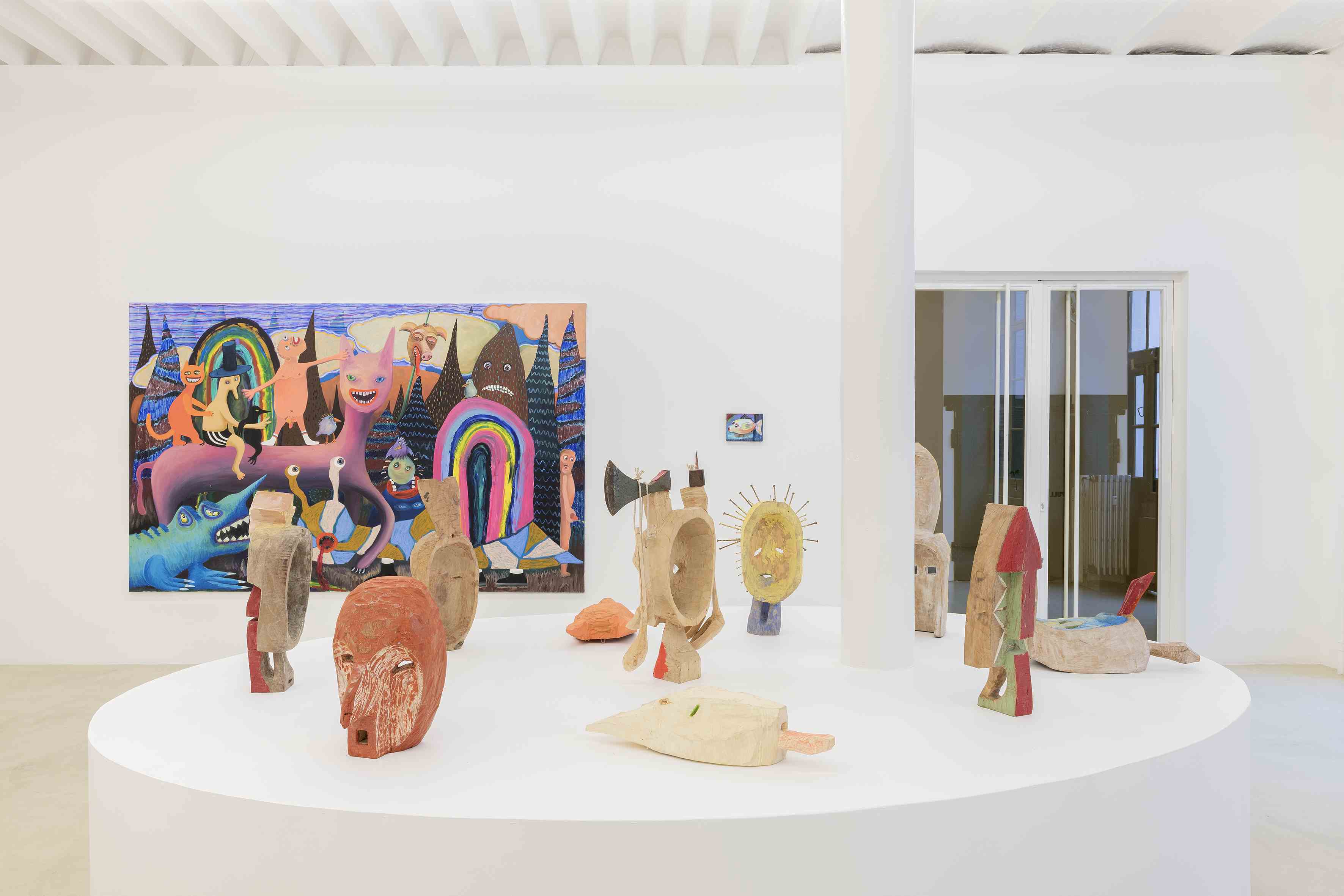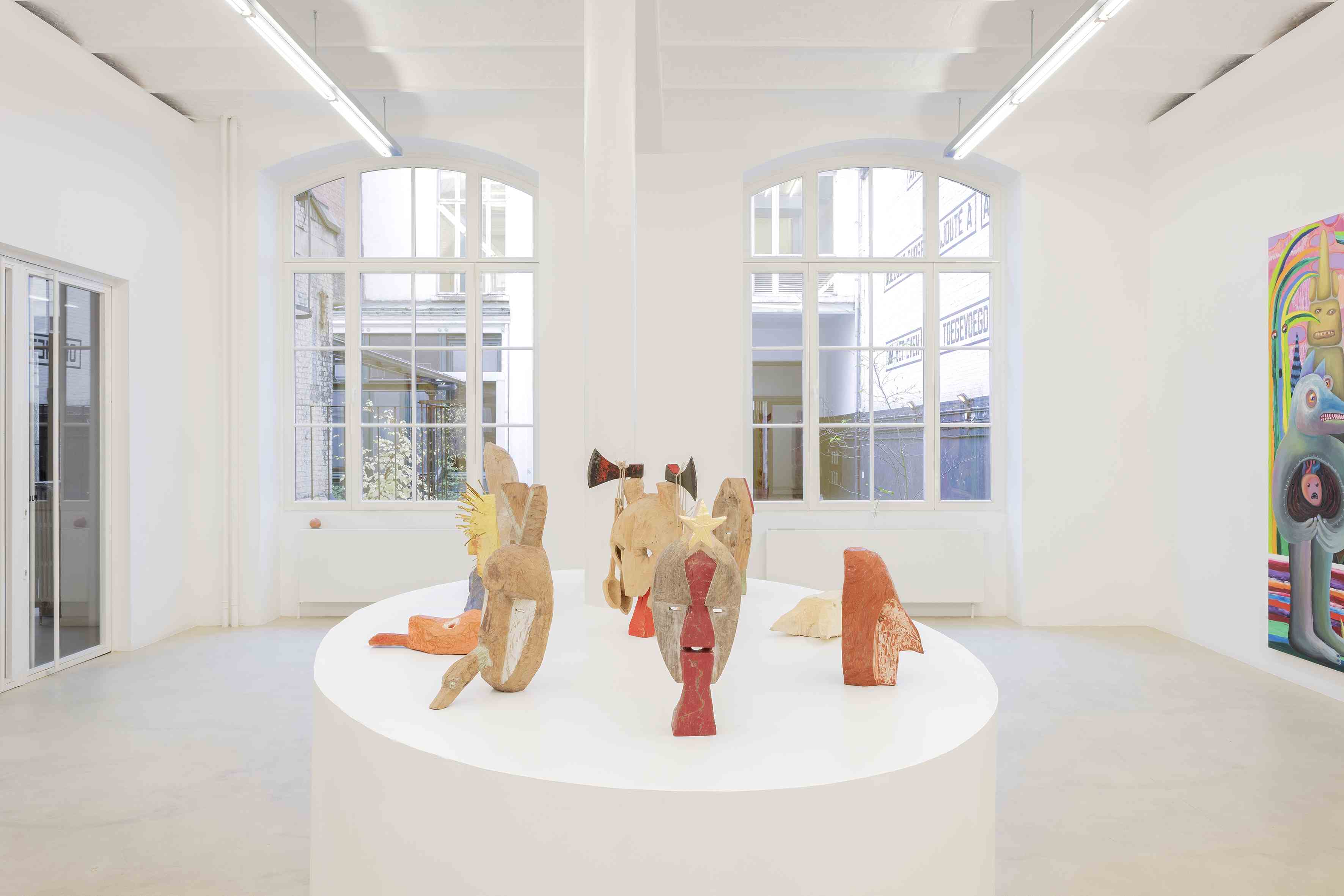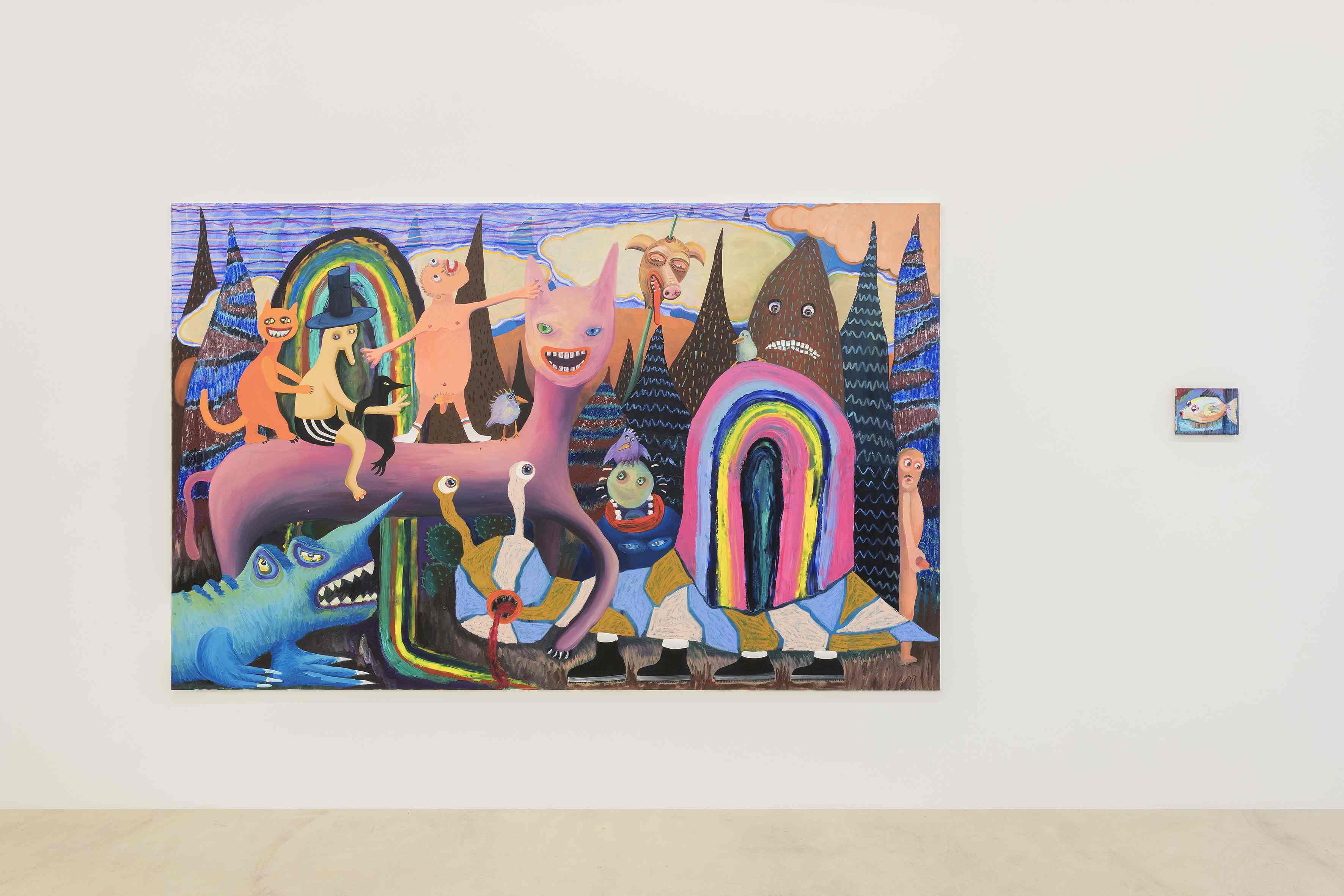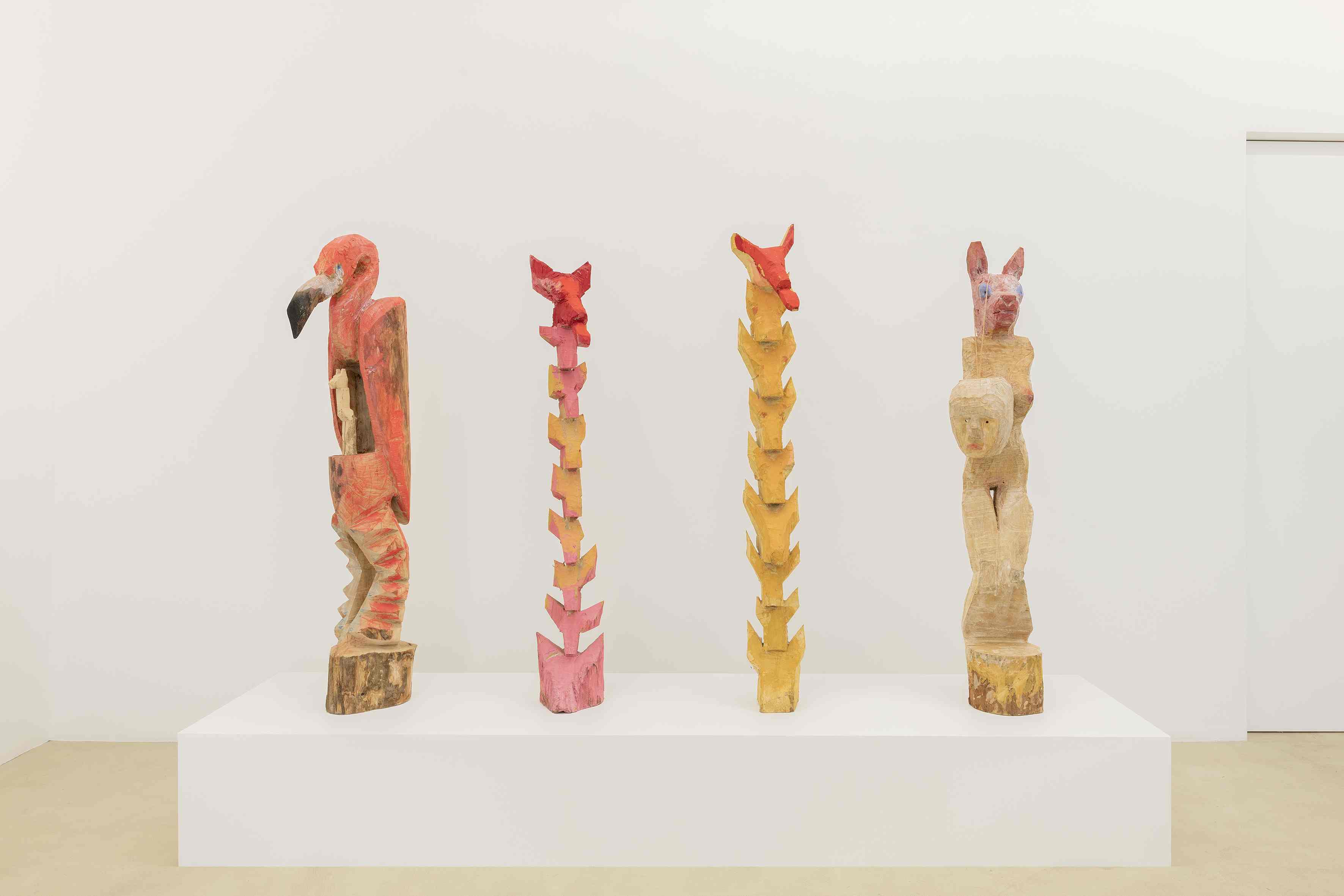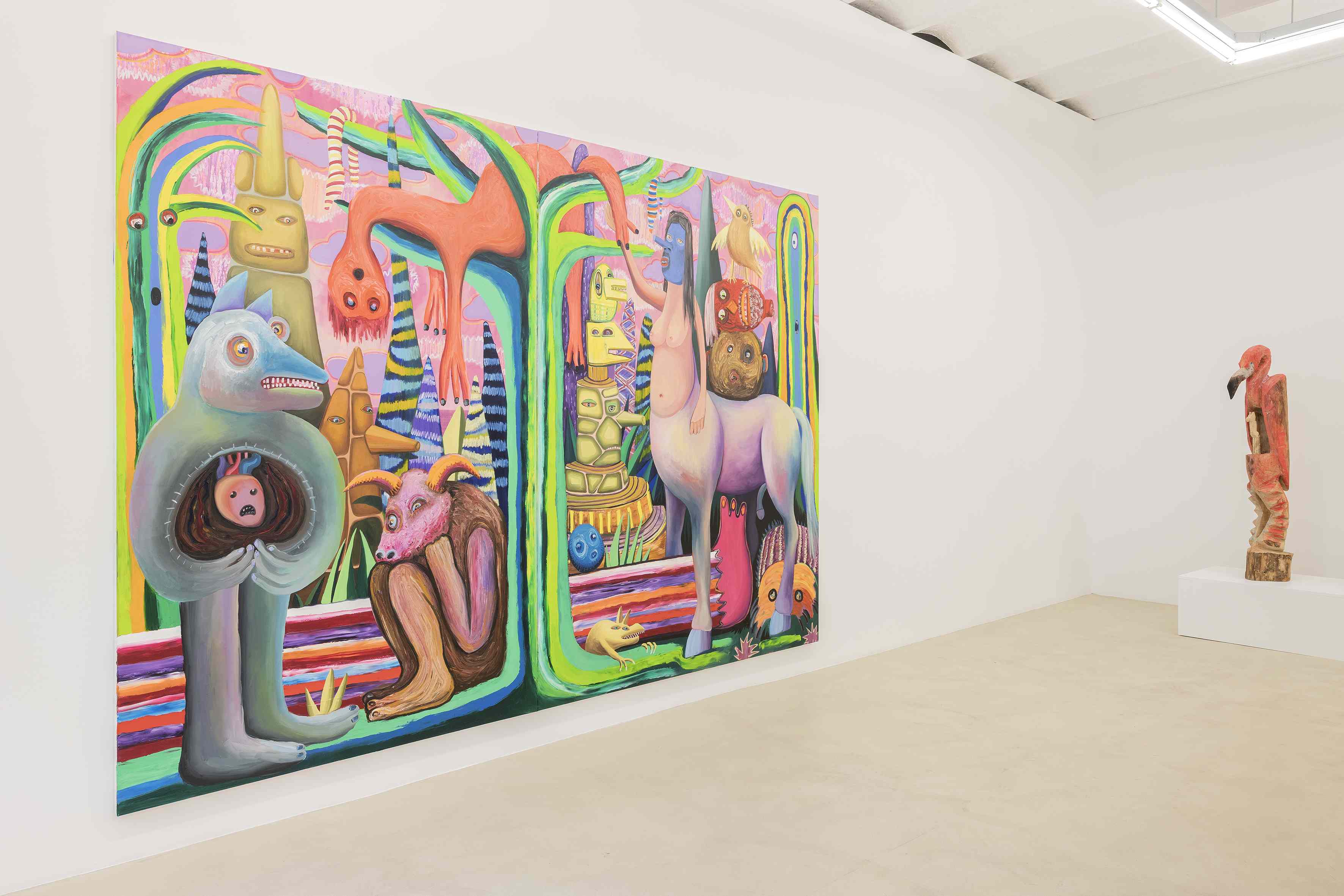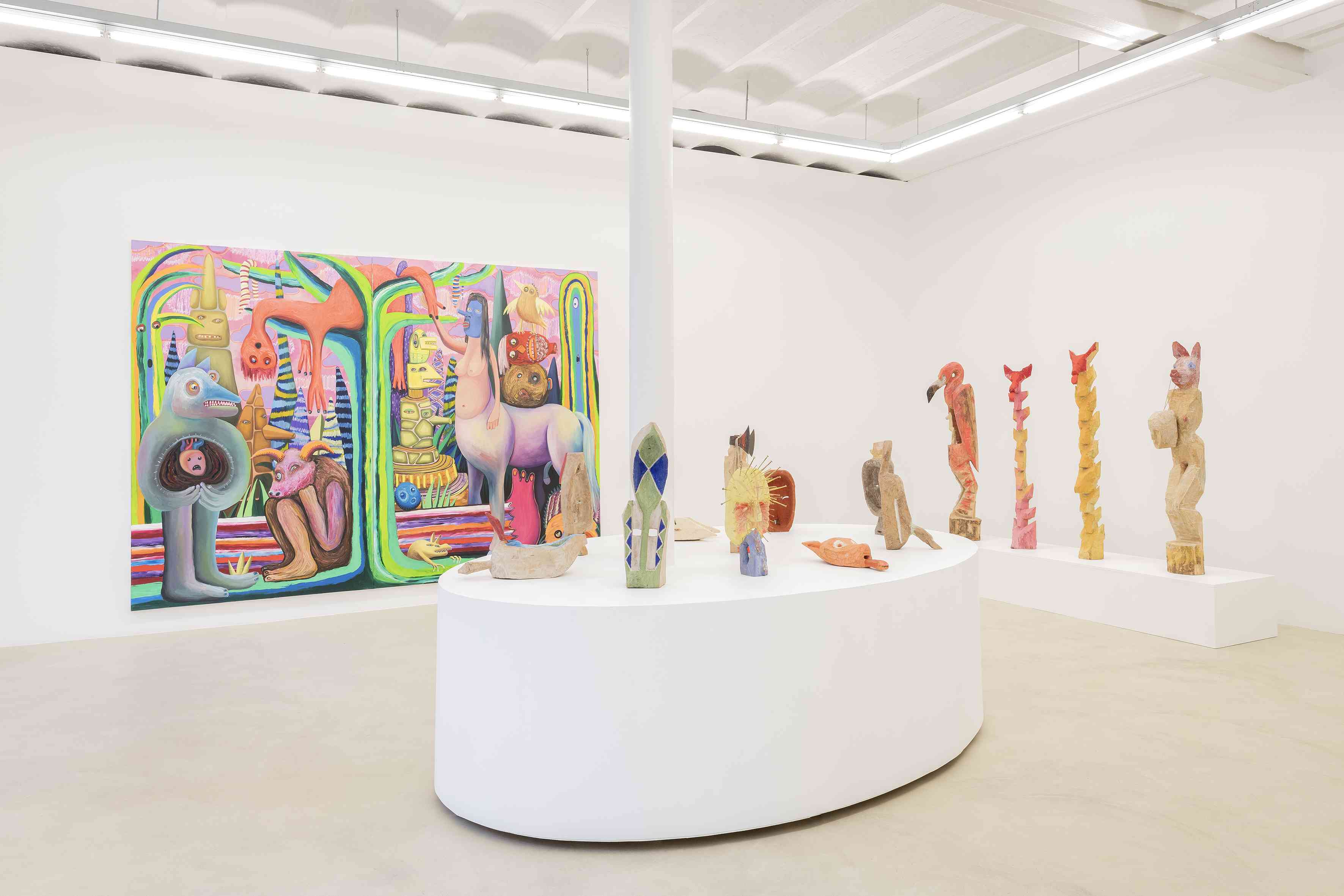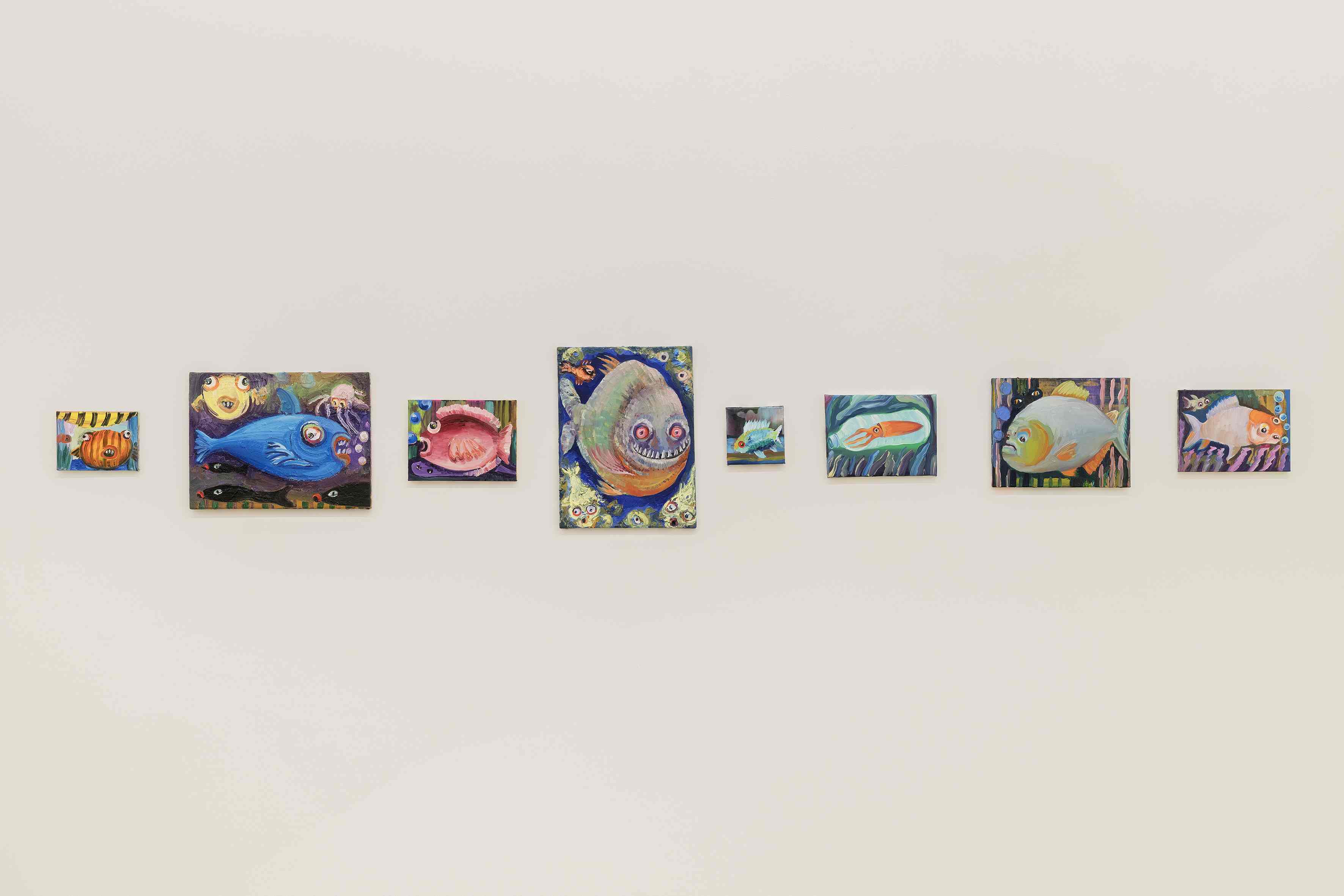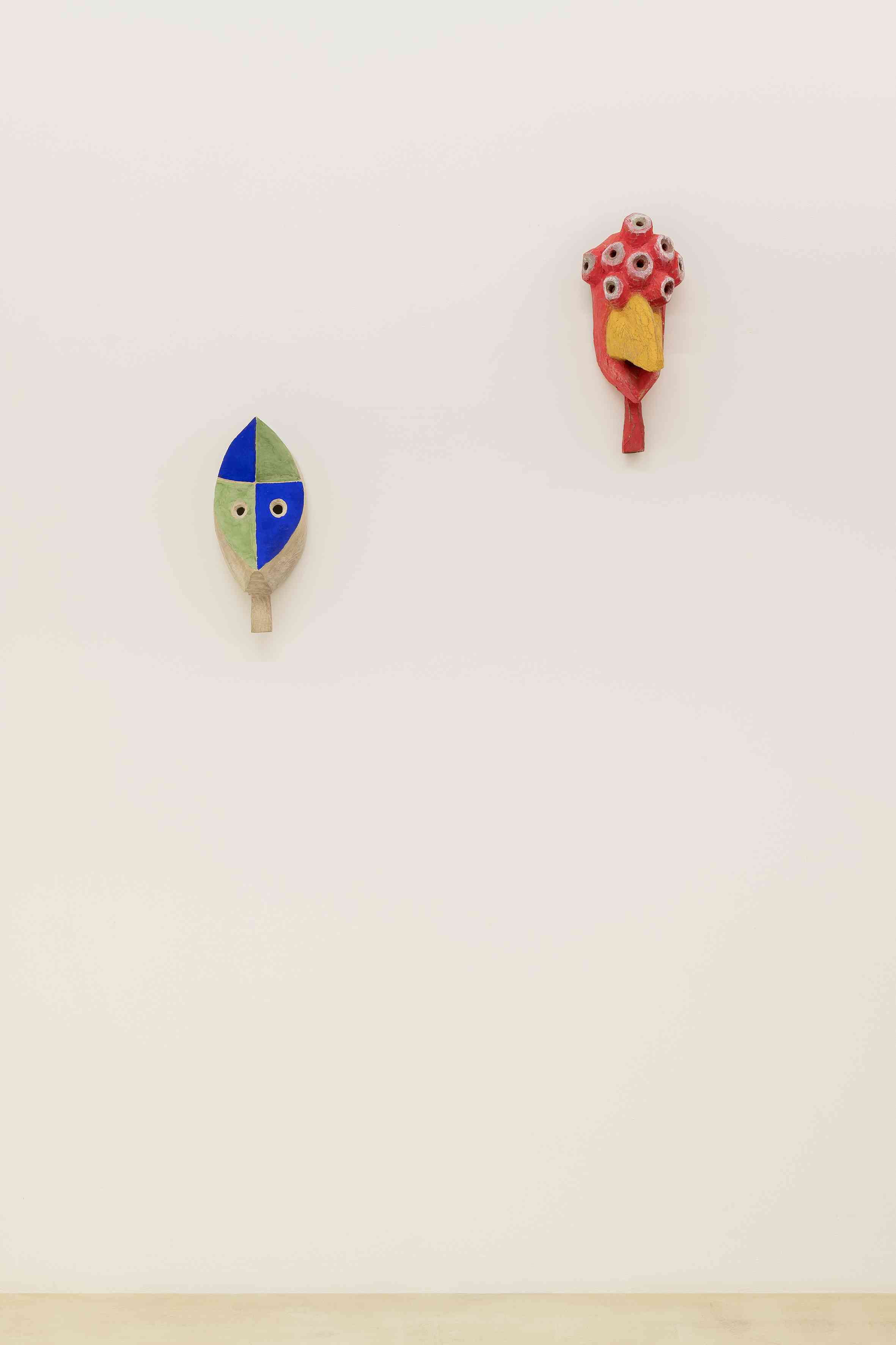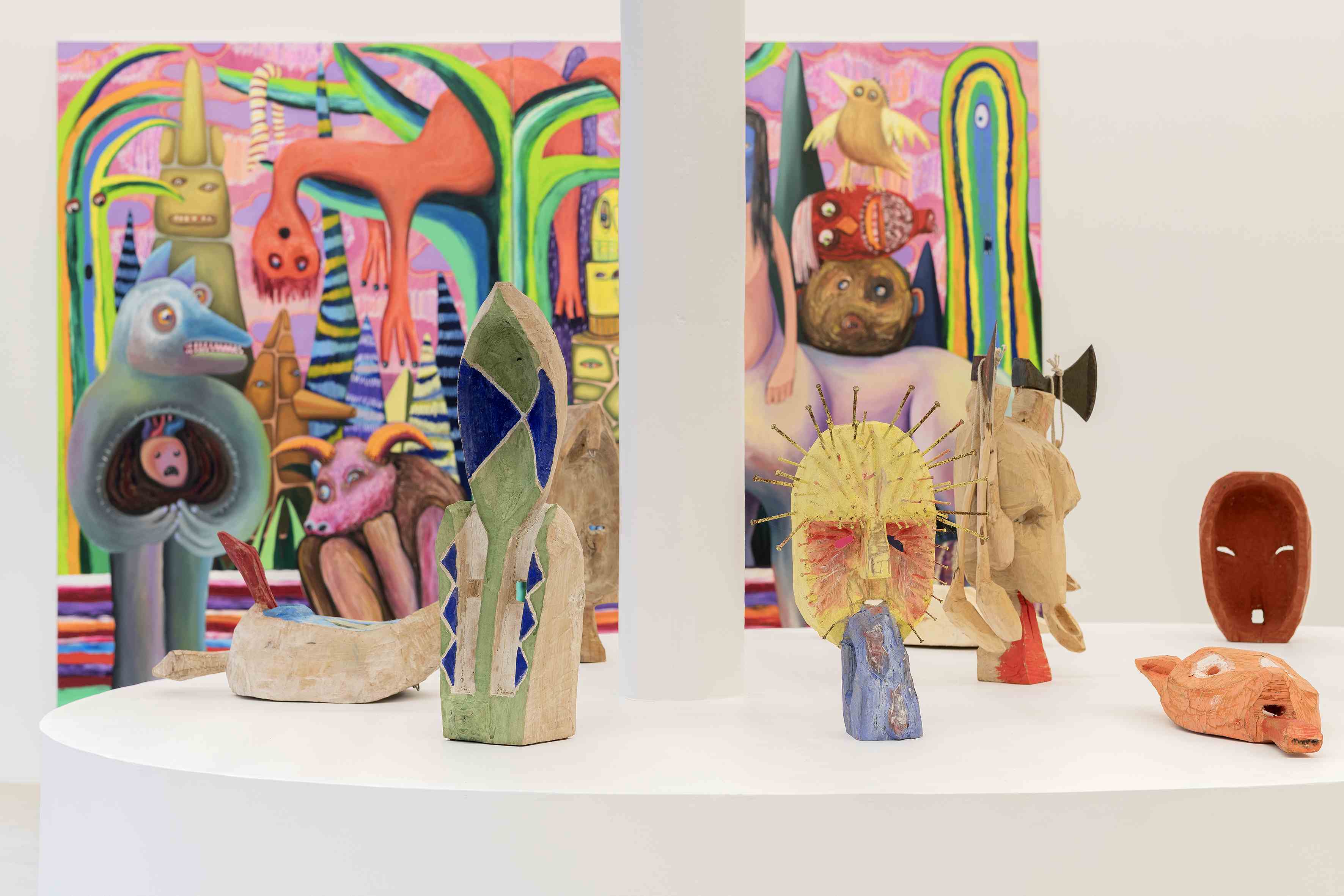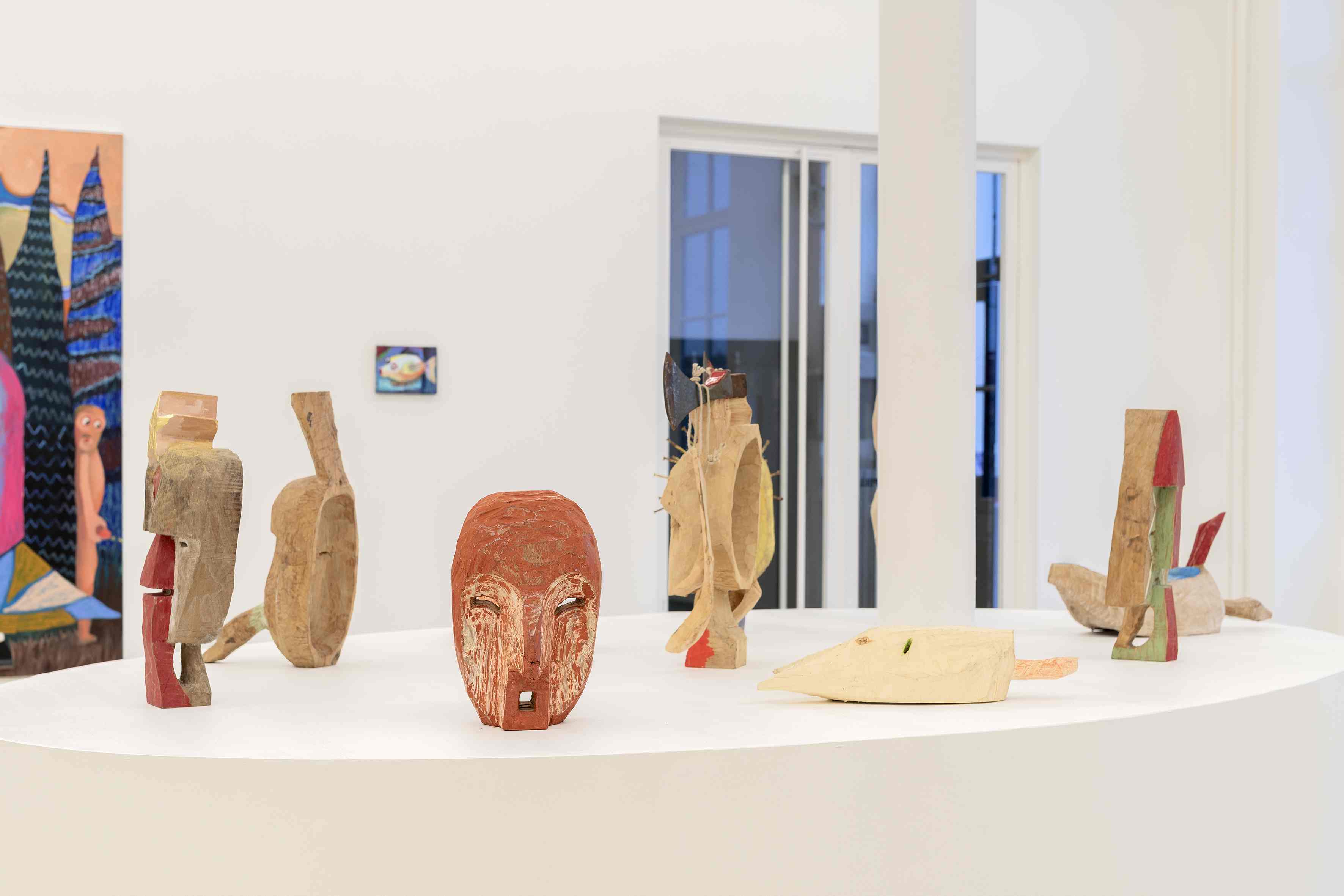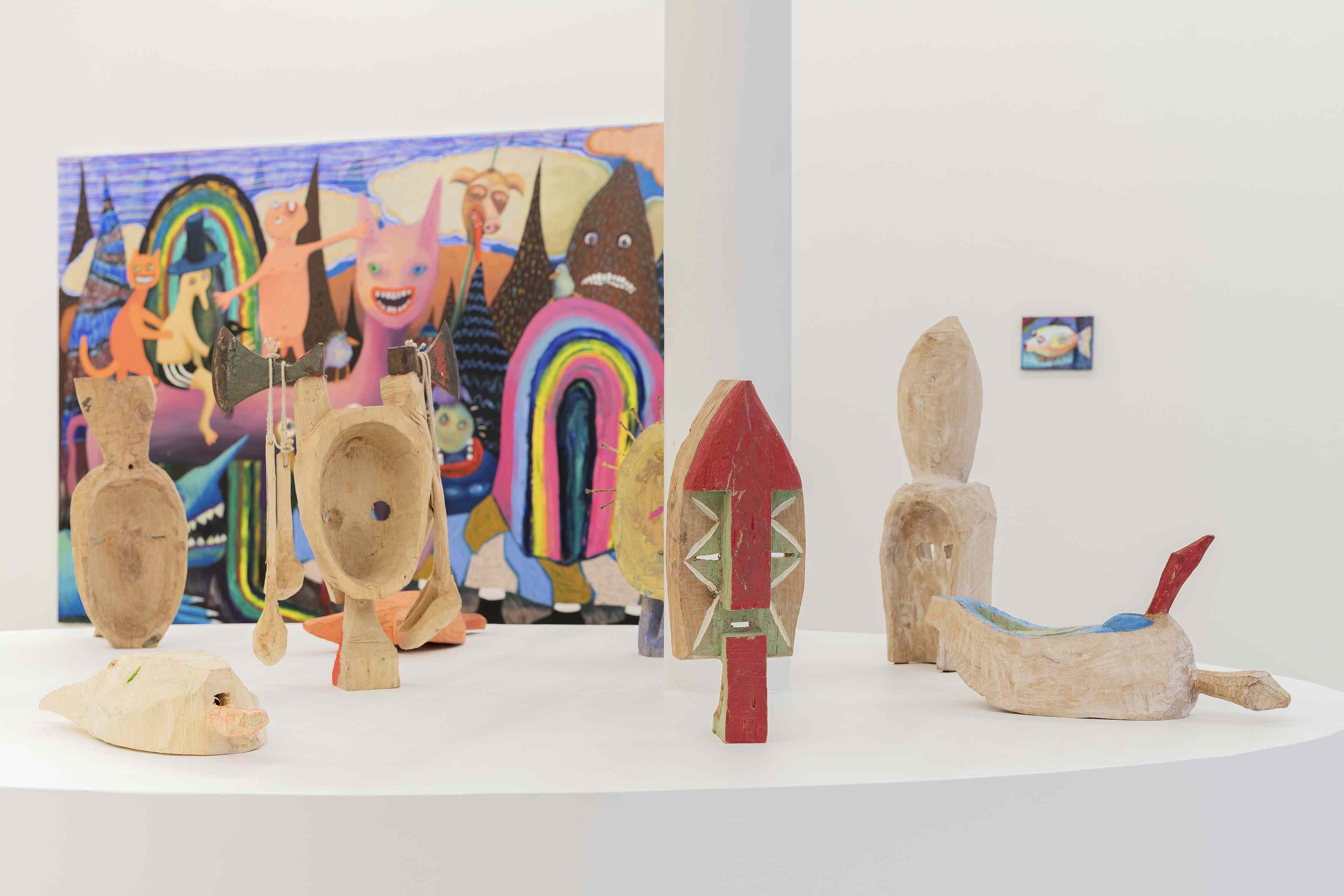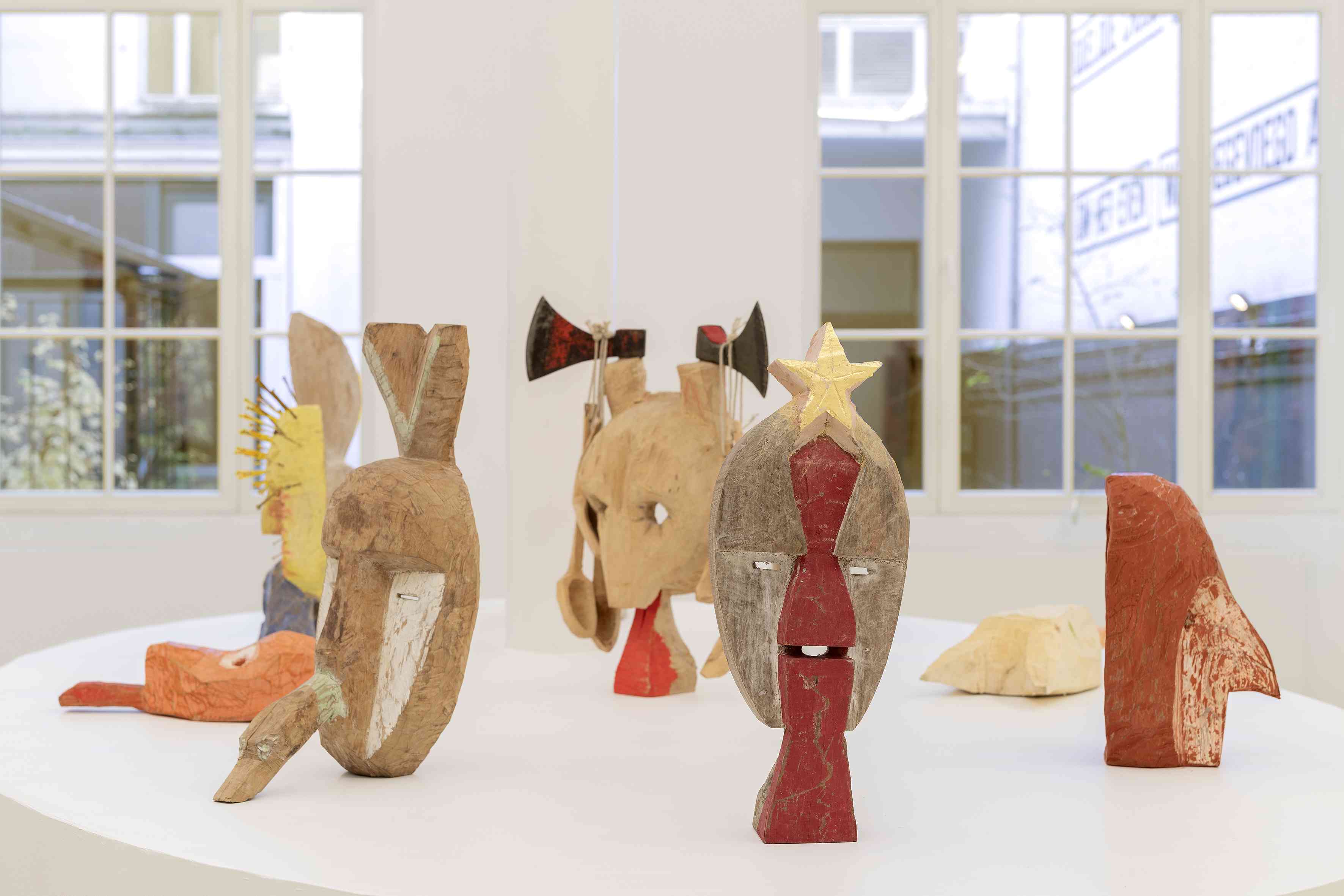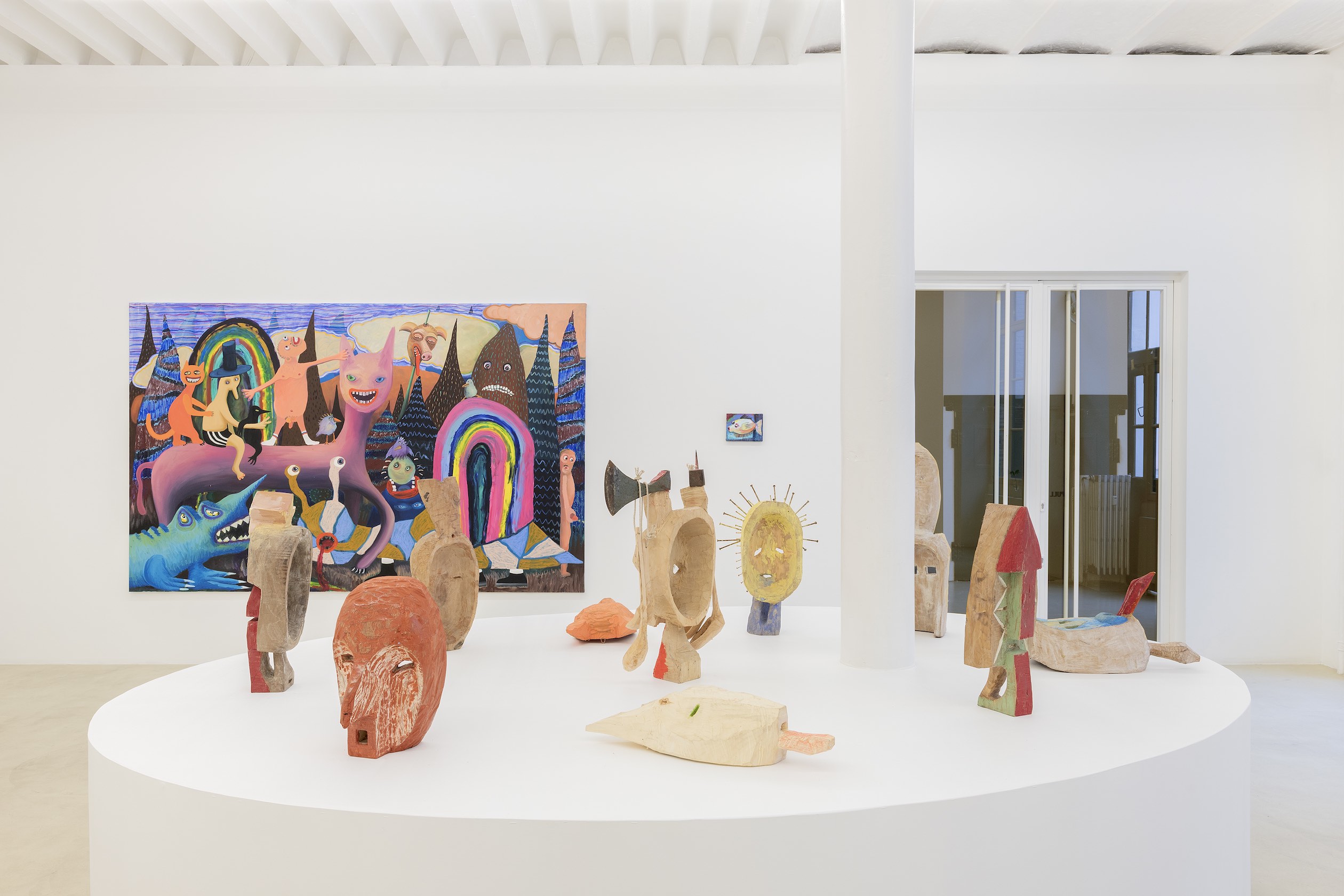
About
Stefanie Gutheil
Don't look at me
24.10.19 → 21.12.19
Sorry We're Closed brings together a selection of works by Berlin-based painter Stefanie Gutheil and French sculptor Christophe Doucet.
Stefanie Gutheil's painting questions social uniformity and seeks to reinstate an appreciation for weirdness, otherness and ambiguity. The unclassifiable, human/animal beings created to that end were much inspired, Gutheil says, by Hieronymus Bosch, David Hockney and Matisse.
Christophe Doucet folds dreams, tradition, anthropology and concepts of nature, as well as metamorphosis, into wooden sculptures that negotiate a material midpoint between our transient and singular experience of the "real" world, and the timelessness of a collective or personal imaginary world.
These two renderings of an imaginary world come together in the sensible balance they strike between candor and crudeness. Both artists worry about unfiltered subconsciousness when it comes to creating, through distinct media and semantics, their peculiar anthropomorphic forms and characters.
In both style and content, Gutheil and Doucet seemingly indulge in a childlike, uncensored and arrestingly honest way of intaking and expressing the world around us, yielding a spooky yet enchanting depiction of imaginary worlds.
The rawness of their work, whether in the linework or the materiality of the piece, might motion to how the act of remembering a past event or a blurry dream necessarily involves simplifying its content and exaggerating the few recollected traits and details. Gutheil like Doucet interestingly demonstrates, therefore, how the relative inaccessibility of the maize of details making up any cognitive image can inadvertently bring forth a very penetrating, simplified yet precise, type of figurative representation.
This exercise in authentic consciousness is further bolstered by the fact that the surreal creatures at play here are, despite their unmistakable anthropological and mythological connotations, uprooted from any clear narrative or particular historical context, depriving the observer of means to justify or situate them. In some ways, this obliges the public to engage with these creatures on their own terms, in a more direct, immediate, unhindered way.
